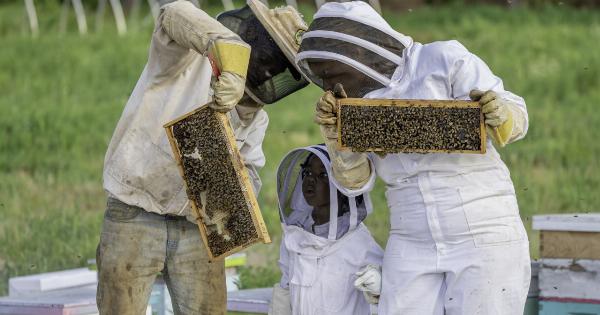Discussing sex with your child is undoubtedly one of the most challenging and uncomfortable conversations for many parents.
However, it is a crucial topic that needs to be addressed to ensure your child receives accurate information, understands consent and boundaries, and develops a healthy attitude towards sexuality. By approaching this subject with sensitivity, openness, and age-appropriate explanations, you can create a safe environment where your child feels comfortable seeking guidance and support.
1. Start Early and Be Proactive
The earlier you begin discussing sex and sexuality with your child, the better prepared they will be to navigate these topics as they grow older. Start by introducing basic concepts, such as body parts and their functions, when they are young.
As your child gets older, build upon this foundation by gradually discussing more complex topics, such as puberty and relationships.
By initiating these conversations proactively, you can ensure that your child receives accurate information and avoids developing misconceptions from unreliable sources.
2. Use Age-Appropriate Language and Material
When discussing sex with your child, it is essential to use age-appropriate language that they can understand.
Adapt your explanations to their level of comprehension and avoid overwhelming them with information that may be too complex or mature for their age.
Additionally, consider using age-appropriate books, videos, or other educational resources to supplement your discussions. These materials can help reinforce the information you provide and provide your child with different perspectives.
3. Create a Safe and Non-Judgmental Space
To ensure an open and honest conversation about sex, create an environment where your child feels safe and comfortable expressing their thoughts and asking questions.
Assure them that no question is off-limits and that you are there to provide accurate information and guidance.
Avoid using judgmental language or shaming your child for their curiosity or interests. Instead, focus on fostering a sense of respect, empathy, and acceptance towards themselves and others.
4. Break the Conversation into Smaller Sessions
The topic of sex can be overwhelming, even for adults. To make it more manageable for your child, consider breaking the conversation into smaller, digestible sessions.
Cover one aspect of the topic at a time and allow for questions and discussions in between.
By dividing the subject into smaller chunks, you can provide your child with the opportunity to absorb the information at their own pace and revisit specific areas when needed.
5. Emphasize Consent and Boundaries
Teaching your child about consent and personal boundaries is crucial from an early age. Emphasize the importance of respecting others’ boundaries and recognizing and asserting their own.
Explain what consent means and that it must always be freely given, enthusiastic, and ongoing.
Teach your child the difference between appropriate and inappropriate touch, and let them know that they have the right to say no to any physical contact that makes them uncomfortable, regardless of the context.
6. Address Different Sexual Orientations
When discussing sex and relationships, it is important to acknowledge that people have different sexual orientations.
Explain to your child that love and attraction can occur between people of the same gender (gay/lesbian), opposite genders (heterosexual), or multiple genders (bisexual, pansexual, etc.).
Normalize these different orientations, emphasizing that they are all valid and that everyone deserves respect and acceptance, regardless of their sexual orientation or gender identity.
7. Be Honest and Admit When You Don’t Know
It is okay to admit when you don’t have all the answers. If your child asks a question you are unsure about or don’t feel comfortable answering, be honest and let them know.
You can reassure them that you will find reliable information or seek help from experts to provide accurate answers.
Modeling honesty and integrity in your discussions teaches your child that it is okay to seek knowledge and that not having all the answers is a natural part of learning.
8. Address Online Safety and Pornography
In today’s digital age, it is vital to discuss online safety and the potential exposure to pornography. Educate your child about the potential risks of sharing personal information online and the importance of maintaining privacy.
Explain that pornography is not an accurate portrayal of real-life relationships or sex and that it is intended for adults only. Teach them how to recognize inappropriate content and the importance of seeking guidance if they come across it.
9. Encourage Questions and ongoing Communication
Encourage your child to ask questions about sex, relationships, or any other related topic. Let them know that curiosity is healthy and that you are there to provide support and guidance.
Regularly check in with them to ensure they feel comfortable discussing these topics and that they know they can come to you with any concerns or uncertainties.
10. Seek Additional Resources and Support
Remember that you don’t have to navigate these conversations alone. There are numerous resources available to help you approach the subject of sex with your child effectively.
Consider seeking age-appropriate books, workshops, or talking to professionals specialized in sex education.
Remember, open and honest communication is key when approaching the difficult subject of sex with your child.
By creating a safe, non-judgmental space and providing accurate information, you can help your child develop a healthy understanding of sexuality.



























